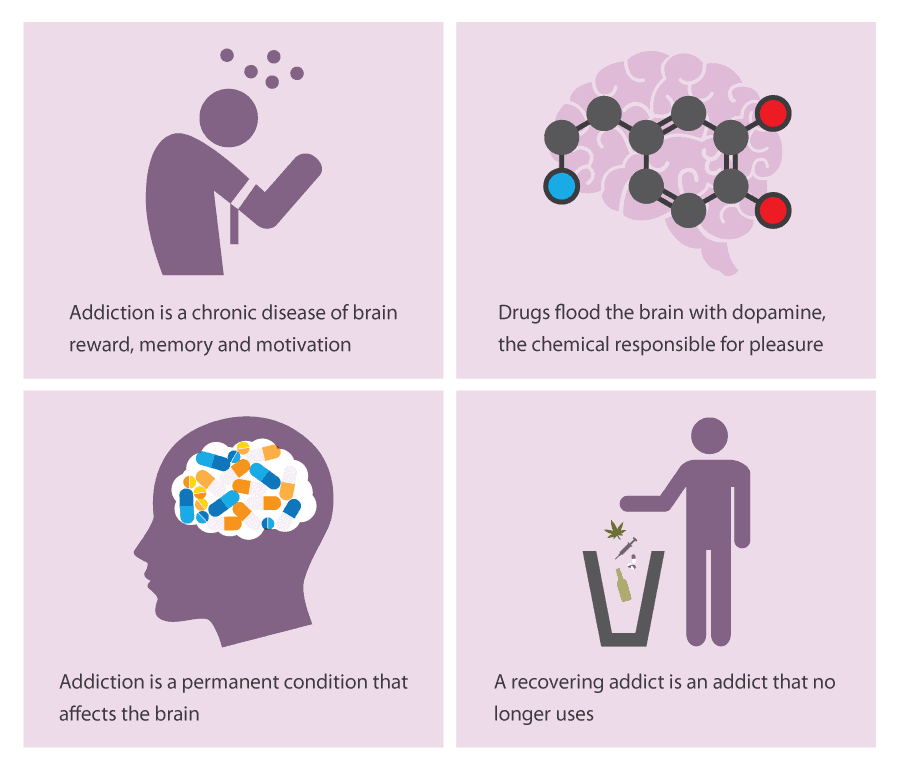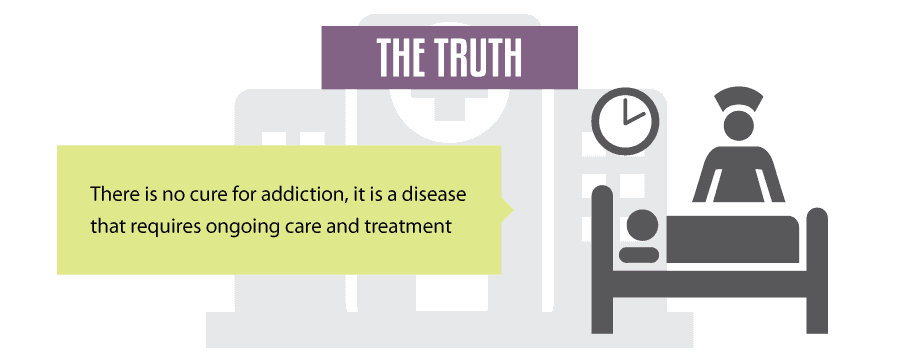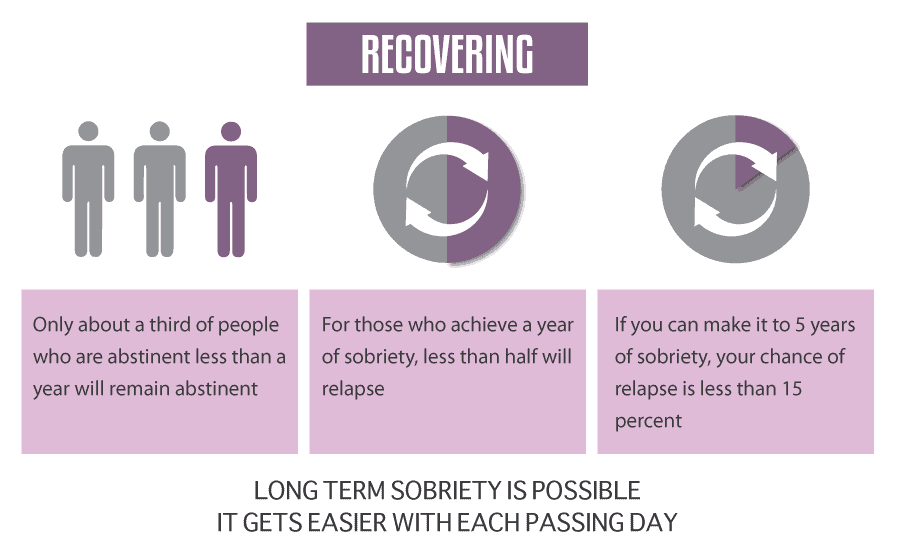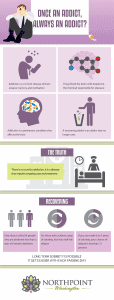You have probably heard the expression, once an addict, always an addict. Like many people, you may have cringed when you heard this saying. Even so, you have to wonder how true it is. Should people really be labeled addicts for the rest of their lives? If someone has been off drugs or alcohol for 20 years or more, are they still addicts? These are questions that deserve some answers. Let’s dive a little deeper into this topic to find out if this old saying actually has some truth behind it. 
What is an Addiction?
First of all, it’s important to understand the definition of an addiction. An addiction is a chronic disease of brain reward, memory, and motivation. An addiction occurs when someone feels the need to compulsively use a substance like drugs or alcohol. Addiction is characterized by the need to use drugs regularly. That person may feel strange without drugs in their system. Their impairment commonly leads to serious personal, professional and social problems. An addiction is a dysfunctional condition that involves relapsing and remission.
Why is Addiction Called a Disease?
Addiction is called a disease because of the cycle of relapse and remission. Also, there are significant changes that take place in the brain when someone has an addiction. Someone who uses drugs or alcohol is continually flooding the brain with dopamine. Dopamine is a chemical that is responsible for happiness, pleasure, and satisfaction. Under normal conditions, the brain makes enough dopamine on its own. When someone has an addiction, there is more dopamine present. Therefore, the brain stops making it, or it makes very little of it. Excess dopamine is what leads to addiction because it produces the high. Once an addiction sets in, many say that it’s there for life. It may not be active, but it’s still there. Addictions are often compared to diseases like diabetes and cancer to demonstrate the concept of relapse. Just like these and other diseases, addictions need continual treatment.
Can a Drug Addiction or Alcoholism be Cured?
If you do an Internet search, you’ll find that there are many thoughts on curing addiction. The top experts in the country state that no, addiction cannot be cured. Others say that researchers are currently working on new treatments to cure addiction. More than anything, addiction is a permanent condition that affects the brain. While it is treatable, a cure seems out of reach at the moment. The closest thing we have to a cure right now is consistent treatment. This will help people to remain in remission and out of their active addictions.
The Definition of an Addict
There are actually two different types of addicts. There are recovered or recovering addicts and active addicts. Recovering addicts are those who are not currently using drugs or alcohol. They may have a short or a long history of substance abuse. However, they have gone through treatment and are working toward abstaining for life. Active addicts are those who are currently using drugs or alcohol. The vast majority of active addicts live their lives in denial. They don’t believe they have a substance abuse problem at all. They certainly don’t believe they need to be treated for their addictions. The question is, should recovering addicts still be called addicts? Those who say no have very strong views on the subject.
Opposing Views of Once an Addict, Always an Addict
People who oppose the saying, once an addict, always an addict usually do so on a psychological basis. The thinking is that labeling an addict will always present the temptation to use. They also think that society views people differently when they’re addicts, even if they’re recovered. Calling someone an addict for the rest of their lives could be damaging. Some people believe that it gives people an excuse to relapse. After all, if that person is an addict, they should do what addicts do, shouldn’t they? This is said in sarcasm, of course. Recovering addict might be a better term, but it still carries negative connotations. Some people simply aren’t comfortable being referred to as addicts, even if they’re recovered.
Can You Ever Actually Break an Addiction?
The term break an addiction is one that is used frequently in the addiction world. Both addicts and addiction professionals use it. The question is, is it really possible to do? People who have turned their backs on their addictions without relapsing would say yes. Others would argue that if they did, they never truly had an addiction in the first place. This is an argument that has gone on for years, and it will probably still continue for years to come. For those who have “broken” their addictions, it makes them feel good to know that. There is a sense of empowerment that comes with the thought of having overcome an addiction. Even so, what most would agree is that they have overcome their active addictions. If they were to relapse, it could be detrimental for them. If the individual is an actual recovered addict, one use could undo years of progress.
The Truth Behind Addiction Recovery
There is hope in the truth behind addiction recovery. If you are a recovering or recovered addict, you might not like the idea of being called an addict. You may roll your eyes when someone says, “Once an addict, always an addict.” You never plan to return to that old way of living again. If that’s how you feel, your feelings are valid. You should be commended for your strength. Even so, you need to know that because there is no cure for addiction, you cannot heal from it. You must never forget the fact that you have an addiction, even if it’s inactive. The addiction you suffer from is a disease that requires ongoing care and treatment. Ignoring taking care of yourself is likely to result in a relapse. This is a fact even if it has been years since the last time you used. You could also end up relapsing by using a different type of substance altogether.
Recovering From Addiction as Time Goes On
Psychology Today published some relapse statistics that are really quite interesting. They stated that:
- The chance of relapse decreases with each month of achieved sobriety.
- 1 out of 3 people who are abstinent from drugs or alcohol for less than a year will remain in recovery.
- Less than half of people who achieve a year of sobriety will relapse.
- For those who make it to 5 years abstinent, their chances of recovery are less than 15%.
- A very small number of people are able to achieve having long-term sobriety.
The good news is that long-term sobriety is possible. Early on in your quit, it may seem nearly impossible to abstain from using drugs or alcohol. However, with every passing day, it becomes easier and easier. Of course, that’s not to say that there won’t be difficult times. Cravings to use may reappear at any time, even if you have been sober for many years. You can still make the choice to remain in recovery and not give in to the temptation to use. There may even come a day when you don’t feel the urge to use at all. Do you agree with once an addict, always an addict? Leave us a comment below.
What Did you Think About This Blog?
Give it a Rating!



